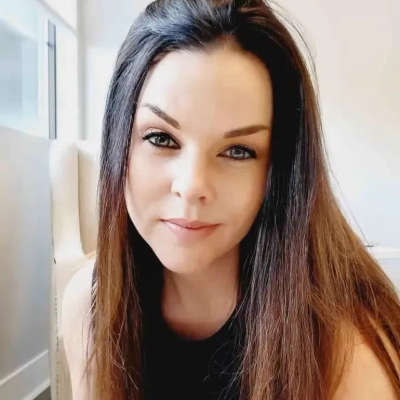22 Small Business Insurance Clauses You Should Negotiate for Better Protection
Small business insurance often contains critical clauses that can significantly impact protection levels when unforeseen events occur. This comprehensive guide examines 22 key insurance provisions that small business owners should consider negotiating, with expert recommendations for each clause type. Insurance professionals share actionable strategies for customizing coverage to address specific industry risks while maintaining cost efficiency.
Customize Coverage for Your Operational Reality
"Don't accept boilerplate coverage your policy should protect how you operate, not just what's easy to insure."
When we were reviewing our small business insurance, one thing that stood out was how vague the "equipment breakdown" clause was. Our operations rely heavily on specialized tools and tech infrastructure, so I pushed to include coverage not just for physical damage, but also for downtime losses caused by software or system failures. The negotiation took a few rounds I shared real scenarios of what downtime would cost us and backed it with data. Eventually, the insurer agreed to tailor the clause to reflect our operational reality. That single change turned a generic policy into a real safeguard for our business continuity.
Extend Coverage to Contractors Under Supervision
One clause I negotiated in small business insurance that made a real difference was expanding coverage for third-party contractors and freelancers. Like many growing businesses, we relied on a blended team—full-time staff plus independent specialists. What I didn't realize early on was that most standard business liability policies quietly exclude contractors unless they're named or separately insured. That gap is dangerous. If a contractor makes a mistake while working for you—say, mishandles client data or triggers a compliance issue—you can still be held liable even though they aren't technically your employee.
When I spotted that exclusion during renewal, I pushed back. Instead of accepting a generic policy, I asked the broker to include a clause explicitly extending professional liability coverage to vetted independent contractors under our supervision. To negotiate it, I took the same approach I use in business deals—come prepared with leverage. I presented our contractor onboarding process, which included NDAs, security training, and quality controls. That let me frame the request not as extra risk for the insurer but managed risk backed by documented safeguards. Once the broker saw we had structure—not chaos—the policy was amended without a painful premium hike.
The negotiation worked because it was based on clarity, not emotion. Insurance companies don't negotiate on fear; they negotiate on proof of control. If you show them you understand your risk and have systems to manage it, you can shape coverage in your favor.
My advice to small business owners: don't just ask what your policy covers—ask what it excludes. The fine print is where your real exposure hides. If something feels vague, push for endorsements or amendments. Policies are negotiable when you can explain your risk responsibly.
Secure Accidental Damage Coverage for Installations
Our insurance policy was too tight for boiler installations. I went to our insurer and explained that sometimes work gets messy, no matter how careful you are. I showed them real examples from our service logs, like a burst pipe or a scratched floor. They listened and adjusted our policy to cover accidental damage, not just gross negligence. I sleep better at night knowing we're actually covered for the realities of our job.

Lower Rates Through Safety Training Records
I had to push back on our workers' comp policy at Jacksonville Maids, especially with our flexible Gen Z workforce. We secured lower rates by proving our safety training was effective, showing them our actual protocols and records. Our claims dropped, and our premiums followed. Using specific examples from our own workplace made the case for us. I'd recommend that approach to anyone.

Tailor Policy to Mental Health Care
At Mission Prep Healthcare, we negotiated coverage for 24/7 residential supervision and gender-specific group home protocols, since most policies overlook the unique risks in adolescent mental health care. It took several meetings and a lot of back and forth with our broker to explain how we actually operate, but we finally got language that covers the situations we face daily. My advice is to show your insurer specific examples from your practice when you need custom coverage.

Adjust Property Coverage in Lending Operations
I got our insurer to adjust our hard money lending coverage, dropping the borrower default clause but keeping our protection on the property itself. That's a huge difference when you work with groups like Wildcat Lending, since the risk shifts depending on how the deal is structured. This might not be the solution for everyone, but it helped us cover major insurance gaps without driving up our premiums.

Address Digital Content Risk in Marketing
I dug into our professional liability policy, focusing on digital content exclusions. I've seen how copyright and data errors can pop up in marketing. I told our insurer about a time a client's website update caused issues, and they actually updated our coverage. If you provide services, ask about those edge cases. A small change in your policy can save you a lot later.

Protect Against Data Handling Errors
When I first launched Zapiy, insurance wasn't the most exciting part of building the business—but it quickly became one of the most critical. Like many small business owners, I initially went with a standard business liability policy. It looked solid on paper until I realized that one of our biggest operational risks—data-related incidents—wasn't fully covered. As a company handling digital campaigns and automation processes for clients, that gap could have been catastrophic.
The turning point came after a near miss early in our journey. A client's analytics platform suffered a temporary data sync issue, and although it wasn't technically our fault, it highlighted how easily responsibility can blur in digital work. When I reviewed our policy afterward, I discovered that the "technology services" clause had narrow definitions that excluded certain third-party integrations and data handling activities. That's when I decided to renegotiate.
The process wasn't quick. I sat down with our broker and walked through how our operations actually worked—how much we relied on data flows between client systems, the nature of automation, and the shared accountability involved in digital marketing environments. I wanted our coverage to reflect the reality of modern business, not a textbook definition. After several rounds, we secured a custom rider that specifically included coverage for data-handling errors and client platform incidents related to automation scripts.
It didn't just give us peace of mind—it changed how I think about risk management as an entrepreneur. Insurance isn't just about protecting your business; it's about making your insurer understand your business. The negotiation taught me that policies aren't one-size-fits-all, especially in industries where technology evolves faster than legal language.
My advice to other small business owners is to treat insurance like you would a key hire: communicate clearly, advocate for your unique needs, and never assume the standard version fits your reality. The right clause, negotiated thoughtfully, can be the difference between a minor issue and a major disruption.
Add Food Poisoning Protection for Restaurants
I changed our restaurant insurance to add a food poisoning clause. I was always worried about that, especially after the place next door had to shut down when someone got sick. It made me realize I had to fight for specific coverage for that kind of thing. My advice is to never just take the standard package. Ask them about the real, specific dangers in your business.

Include Property Valuation Mistake Coverage
In bridge lending, I found that standard errors and omissions coverage misses the important stuff. We pushed our underwriters to include clear language for property valuation mistakes, and that made all the difference when deals got messy. Generic policies just leave too many gaps for what we do. You have to sit down with your broker, map out your actual workflow, and get them to tailor the policy instead of using some finance template.

Remove Animal Injury Exclusion with Data
Insurance for my dog training business was always tricky since dogs can be unpredictable. I showed our insurer years of incident records from classes - zero injuries over five years - and they actually removed the animal injury exclusion. Having those safety logs ready saved me. If you're negotiating insurance, bring your actual numbers. They work better than you'd think.
Expand Interruption Coverage for Franchise Growth
When Dirty Dough was growing fast, I had to figure out our business interruption insurance. A problem at one franchise could mess up the whole company. We got our insurer to extend our coverage by showing them the data from past problems and how we bounced back. That's what convinced them. If you're expanding fast, don't just ask for more, show them how you've actually handled things.
Strengthen Student Data Protection Policies
Getting cyber insurance for Tutorbase was a headache, especially with GDPR rules for our work in Asia. I had to walk the insurer through exactly how we handle student data, showing them our internal policies. They dropped most of their exclusions after that. My advice: map out where your student data goes before you call them. That one step saved us weeks of back and forth.

Recognize Nature as Core Business Asset
Many insurance policies tend to overlook the deep connection between land and livelihood. We wanted coverage that recognized how environmental disruption from extreme weather could directly affect our operations. Our work depends on the health of the soil and biodiversity making it essential that our policy reflects this relationship. After several discussions with environmental consultants we built a strong case that positioned nature as a core business asset.
The negotiation process was detailed and required persistence from all sides. We shared data and examples showing how ecosystem damage could interrupt productivity and long-term sustainability. It took multiple revisions before the insurer began understanding the value of natural resources as part of our operational framework. The final agreement was a milestone as it acknowledged that protecting nature also means protecting the foundation of our business.

Reduce Tear-Off Damage Liability with Evidence
Small business insurance often contains standard exclusions that create a massive structural failure in actual coverage for heavy duty operations. The clause I negotiated to better protect our specific operations was the Exclusion for Damage to Existing Structure During Tear-Off. Standard policies treat this as a risk they won't cover, meaning if our crew damages decking that wasn't previously noted as defective during the tear-off, the financial liability falls on us.
The conflict was the trade-off: accepting the increased risk of a clean tear-off being labeled a pre-existing condition versus paying a massive premium increase. The negotiation process worked because I approached the insurer with Hands-on Verifiable Data. I didn't argue the legal language; I presented our safety and training protocols—our documented crew certifications, specific lift procedures, and thermal imaging pre-inspections—that guarantee a clean, damage-free tear-off. I quantified our near-zero claim history for tear-off damage, proving our operational integrity was exceptionally high.
This negotiation successfully framed our work as low-risk, allowing us to reduce the deductible for that specific exclusion and secure a clause that covers verifiable, accidental damage during the process. The insurer traded their abstract fear of risk for our demonstrable structural certainty. The best way to negotiate insurance is to be a person who is committed to a simple, hands-on solution that prioritizes verifiable operational discipline over abstract legal language.
Cover Equipment Stored in Company Vehicles
I ensured our small-business insurance policy included coverage for equipment stored in company vehicles overnight. Early at PCI Pest Control, a break-in resulted in the theft of a technician's truck equipment, including sprayers, traps, and protective gear. When I filed the claim, I learned our policy only covered tools stored inside the building. This experience highlighted the importance of aligning policy details with fieldwork realities. At our next renewal, I worked with our broker to add an endorsement for tools and supplies stored in vehicles after hours. Although this increased our premium slightly, it protected a critical aspect of our operations.
The negotiation was straightforward after I explained our business model and the value of the equipment technicians use daily. I provided a detailed inventory and photos to document what was at risk, which helped the insurer understand the need for the change. This adjustment has proven valuable multiple times. The key lesson is that insurance policies are not one-size-fits-all, especially for service businesses operating in the field. Tailoring coverage to your actual workflow can prevent a minor incident from becoming a major financial loss.

Protect Against Service Equipment Damage Claims
One clause I made sure to negotiate in our small business insurance was coverage for damage caused by our equipment during service. Early on, a technician accidentally cracked a customer's window while treating the exterior of a home. When I filed the claim, I learned that our policy didn't cover "property damage resulting from equipment use," which caught me off guard. That experience made me realize how generic small business policies can be—and how easily they miss the details that matter in a hands-on industry like ours. I went back to the insurance provider and walked them through what our work actually looked like day to day, from spraying around structures to moving ladders near windows.
That conversation led to an amendment that specifically covered accidental damage caused by tools and application equipment during service calls. It cost a little more, but it gave us peace of mind and saved us from out-of-pocket losses later. What I learned from that process is that insurance isn't one-size-fits-all—you have to educate the insurer about your business to get real protection. Taking the time to explain our operations in detail turned a basic policy into one that actually fits the risks we face in the field.
Secure Wildlife Handling Damage Endorsement
When I first reviewed our general liability policy, I noticed that wildlife-related damage was listed as an exclusion. Since part of our operations involves wildlife removal and prevention, that clause essentially left us exposed in the exact area we specialized in. I contacted our broker and explained how that exclusion didn't align with our business model. It took several back-and-forth conversations and detailed documentation of our safety protocols, training standards, and service procedures, but the insurer eventually agreed to include a custom endorsement that covered property damage resulting from wildlife handling. That negotiation took time, but it closed a major gap in our protection.
That experience taught me how important it is to challenge assumptions in insurance policies instead of just accepting standard language. The insurer wasn't trying to be difficult—they simply didn't understand the nuances of our work until I walked them through it. Now, I review every renewal line by line, especially exclusions, to ensure the coverage still fits our actual risks. The effort upfront has paid off multiple times, giving us the confidence that when issues arise in the field, we're genuinely protected rather than hoping we are.
Add Coverage for Showing-Related Property Damage
Look here, at ODIGO Realty I saw small damage from showings, like scuffed floors, cost teams big money. So I got our insurance policy updated to cover it. The process was tedious, showing the broker examples of past issues. But if you do a lot of showings, make sure your policy covers these everyday accidents. It's worth the hassle.
Include Staff Cybersecurity Training Protection
I got a specific clause added to our business insurance that covers staff cybersecurity training and the security updates we need for HIPAA. Most cyber issues happen because people make mistakes, so this covers our biggest risk. After I explained the risks we face with dental clients, our insurer went for it. It's a huge relief every time we bring on someone new.
Modify Abuse Exclusion for Mental Health
Running a mental health practice, I found our insurance had an 'abuse and molestation' exclusion, which was a big problem for our one-on-one work. The insurance company first said no. But when I showed them our detailed background checks and training logs, they changed the policy. My advice? Document all your safety procedures. Proving you're serious to the insurance people is what gets them to say yes.
Add Trench Collapse Coverage for Excavation
At my old company, Kitching & Co. Dirtworx, our insurance was useless for trench collapses on utility jobs. I sat down with our agent, showed him old incident reports and our safety plans until he got it. He eventually added a clause for our specific excavation risks. If you have weird risks on your sites, you have to push them with real data. Don't just take the standard policy.













